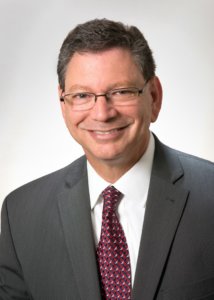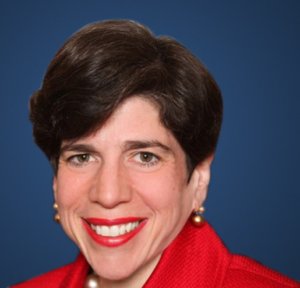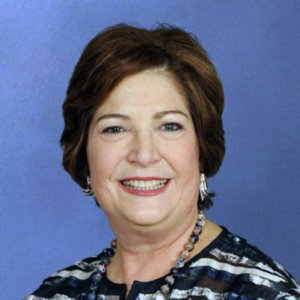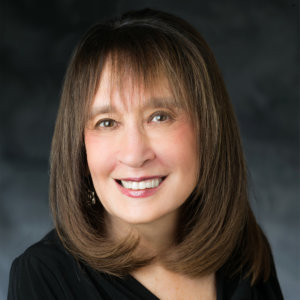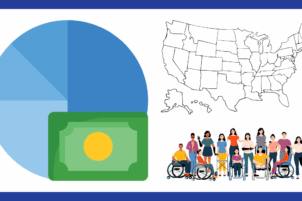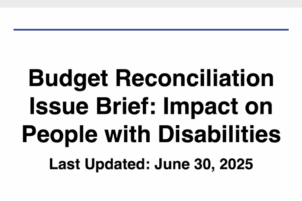New National Poll Released on Inclusion of People with Disabilities in Faith Communities Shows Concerns on Access to Healthcare, Education, Jobs, Fighting Stigmas and Jewish Inclusion
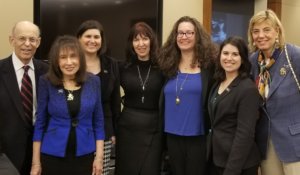
Ron Glancz, Vivian Bass, Lauren Appelbaum, Heidi Daroff, Dana Marlowe, Hillary Steen and Jennifer Laszlo Mizrahi on Jewish Disability Advocacy Day
Survey Responses – Jewish Respondents (PDF)
Survey Responses – People with Disabilities compared to People without Disabilities (PDF)
Los Angeles, Calif., Sept. 17 – More than 4000 respondents participated in the “RespectAbility 2018 Jewish Disability Inclusion Survey,” which focused on the inclusion of people with disabilities in faith communities in America. This includes more than 900 individuals who self-disclose that they are a person with a disability.
The Jewish respondents with disabilities point to a lack of people with disabilities in leadership roles as clergy or staff at Jewish institutions and do not fully feel welcomed to serve as leaders in lay positions in the Jewish community either. Only 15 percent of Jews with disabilities know of a person with a disability in leadership. Fewer than 10 percent of Jews without a disability connection know of a person with a disability in leadership. Only 18 percent of people with disabilities answer “yes” that they “feel that people with disabilities are encouraged to serve on the boards and committees of your faith-based institutions.”
“If you see it, you can be it – and today Jews with disabilities need more role models with disabilities in leadership in the Jewish community,” said Jennifer Laszlo Mizrahi, president of RespectAbility. “Many also want to be recruited, trained and empowered to make the Jewish community stronger, just like anyone else.”
Steve Rakitt, President of the Genesis Prize Foundation, added, “It is important that each of us – as participants and as leaders in the Jewish community – be open about our own disabilities. The fact that most respondents cannot name a Jewish leader with a disability simply highlights that many disabilities are not visibly evident. By modeling openness and candor, we can change the perception that being a Jewish leader and being a person with a disability are not mutually exclusive.”
Concerns on Access to Healthcare, Education, Jobs, Fighting Stigmas and Jewish Inclusion
Of Jewish respondents (2,570), protecting access to healthcare, Medicaid and SSDI for people with disabilities (44%), and enabling them to get the education and jobs that they need to succeed (30%), fighting stigmas (18%) and increasing inclusion for people with disabilities in faith-based institutions (8%) all are seen as relevant.
Fully 85 percent of Jewish respondents are concerned about increasing inclusion of people with disabilities in their faith community, including 35 percent who are extremely concerned. Still, while it is important to them to increase inclusion, it is also clear that of primary concern are healthcare, education and jobs.
Respondents ranked many areas of Jewish life as very important to extremely important to include Jews with disabilities, from Jewish Day School to holiday programs, to youth groups and assisted living.
Overall, Jews with and without disabilities are not fully satisfied with the level of inclusion in the Jewish community, but they do see things as getting better.
Encouragingly, 43 percent of both Jews with and without disabilities feel that the community is doing “somewhat well” on inclusion of people with disabilities, and 38 percent of Jewish respondents with disabilities feel that the community is doing “a little better” on inclusion over the past five years. Of note, 36 percent of Jewish respondents with no disability connection “do not know” if there has been any improvement over the past five years, pointing still to a lack of awareness and an opportunity to increase inclusion.
When asked, “Aside from an individual’s family and friends, which part of the community is most responsible for increasing inclusion of people with disabilities,” the leading responses are synagogues (35%) followed by Jewish Federations (23%).
Jews with disabilities also point to the synagogues (20%) and social organizations (21%) as the most challenging areas for inclusion.
Rabbi Julie Schonfeld, Chief Executive Officer of the Rabbinical Assembly, the worldwide association of Conservative/Masorti Rabbis, said, “the data calls on us to reach outward and upward.”
“‘Outward’ because we can clearly see how many people are ‘outside the tent’ given the numbers of individuals and families who are affected. ‘Upward’ because Judaism calls on us to comprehend the sacred in all the diversity of creation, this study reminds us of how much our institutions can be enriched by inclusion. Identifying and supporting leaders who have first-hand experience of disabilities will strengthen us as Jews and as Jewish communities.”
More than a third of Jewish respondents with a disability identify the biggest barrier as “prejudice and unacknowledged stigma against people with disabilities.” Jews with no disability connection note prejudice first as well at 28 percent but other answers again point to opportunities to increase inclusion. Another 37 percent combined point to the largest barriers being a lack of information rather than will:
- “Religious leaders and activists want to be inclusive, but they don’t know how.” (19%)
- “Including people with disabilities can be complicated and we don’t have the expertise to serve every need.” (18%)
Mental Health
The top type of disability noted by members of the Jewish community is mental health. Indeed, 21 percent of the Jewish respondents personally have a mental health issue or someone in their household does.
“There is an epidemic of suicides in the Jewish community and we have to address this,” said Linda Burger, Treasurer of RespectAbility and CEO of Jewish Family Services of Houston.
Burger and RespectAbility will conduct a webinar on “Saving Lives, A conversation about suicide prevention in the Jewish community” on Oct. 3, 2018 at 1:00 p.m. EST.
Lack of Inclusion
Jews with disabilities noted in open-ended responses a series of events when they were not included, such as:
- I had two sons enroll in the same Jewish day school they couldn’t accommodate the son who is on the autism spectrum. He is well behaved but otherwise needs a bit more help. He ended up going to a Catholic school instead. He was disappointed and so was I.
- A person with mental health issues was stopped from attending a service that included a bar mitzvah because they sometimes behave inappropriately.
- When I moved here many years ago the Rabbi at the Reformed Temple, which was inaccessible, told me I could not come to High Holy Days services because of the steps.
- My close friend had to leave a job with a Jewish org housed in a synagogue due to lack of access.
“We are a stronger community when we live up to our values— when we are welcoming, diverse, moral, and respect one another,” said Vivian Bass, a member of RespectAbility’s executive committee, Inclusion Co-Chair and disability expert. “We want our children, parents, grandparents and other family and friends with disabilities to be able to have an equal opportunity to fully participate in our community.”
About the Survey
The survey was fielded July–September 2018 and includes 4,061 respondents; 2,570 are Jewish, 559 of whom are Jews with disabilities. It is important to note that while this study is extremely extensive and has a large sample size that this poll was fielded almost exclusively online and was distributed widely via social media, Jewish press, and by partnering organizations in the Jewish community. Phone survey options and assistance were made available to respondents although, due to the nature of the online survey instrument, the sample likely underreports people with cognitive and intellectual disabilities among others.
This survey was made possible by the financial support of The Genesis Prize Foundation, which worked with the Jewish Funders Network to conduct the Breaking Barriers Initiative, created to honor Itzhak Perlman, 2016 Genesis Prize Laureate and world-renowned violinist and activist for people with disabilities. Ahuva and Aaron Orlofsky of the ORLO Fund, and the Beverly Foundation matched that support. The overwhelming response to the survey would not have been possible without the partnership of the Jewish Federation of Greater Houston, Jewish Federation of Greater Los Angeles, Jewish Federation of Greater Washington, UJA–Federation of New York, Jewish Federation of Greater Philadelphia, the LA Jewish Journal, New York Jewish Week’s New Normal and JTA.
RespectAbility is a nonpartisan nonprofit organization that fights stigmas and advances opportunities for people with disabilities. It was founded by three Jewish leaders – Jennifer Laszlo Mizrahi, Donn Weinberg and Shelley Cohen. Resources on Jewish inclusion can be found at www.respectability.org/resources/faith-inclusion.


